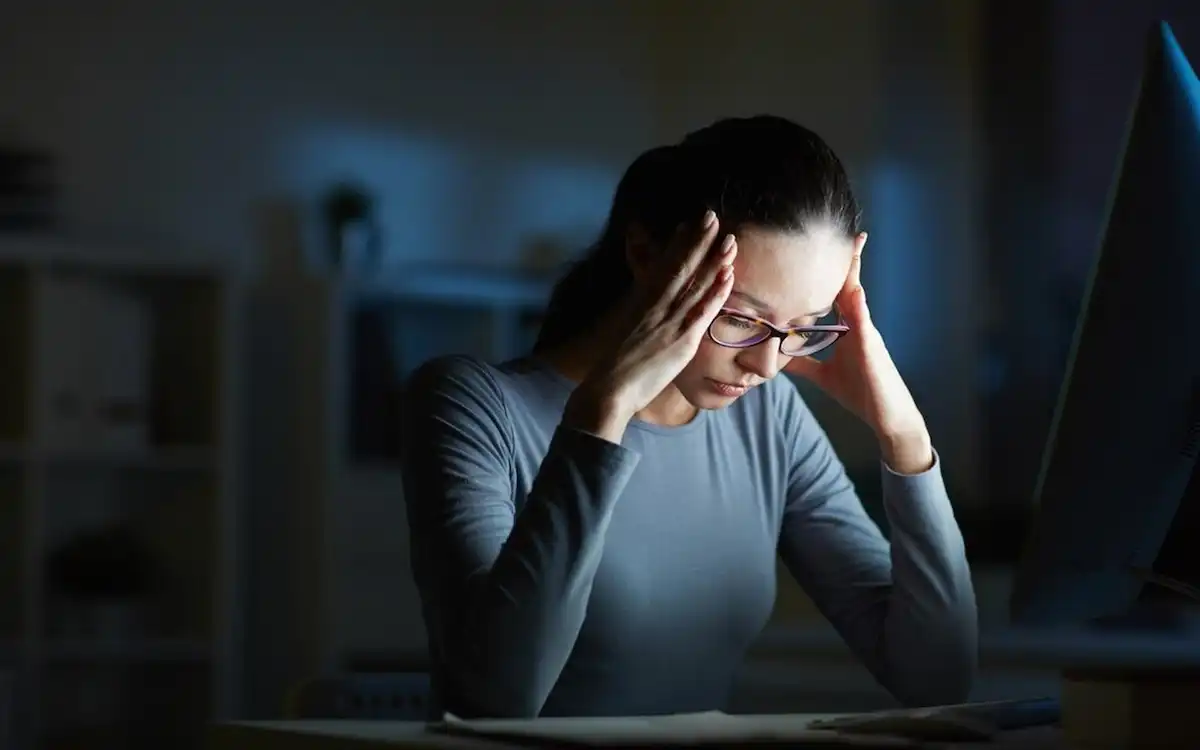Many people are stressed and anxious all the time these days because of how fast paced life is. These emotions can be too much to handle whether they’re caused by stress at work, problems in personal relationships or the constant flow of information in the digital world. However, learning how to deal with stress and anxiety is important for keeping your mind and body healthy.
Understanding Stress And Anxiety
It is important to know the difference between stress and anxiety before you try to solve the problem. When you have to do something quickly like meet a deadline or get ready for a presentation your body reacts with stress. For short periods it can help focus and performance. However, stress that lasts for a long time can cause health problems like headaches, stomach problems and even high blood pressure.
Anxiety lasts longer and can happen even when there aren’t any immediate stressors. It often shows up as unease or dread about the future with symptoms like fear, nervousness and too much worry. Mild anxiety is normal but chronic anxiety can make it hard to do normal things and may need help from a professional.
Lifestyle Changes To Reduce Stress
Making changes to your lifestyle is one of the best ways to deal with stress and anxiety. Making small changes can have big impacts on mental health.
Exercise Regularly
One of the best known ways to reduce stress is to do physical activities. Endorphins are the brain’s natural mood boosters that are released when you exercise. It helps keep hormones like cortisol in check which is often linked to stress. Regular exercise like a morning jog, yoga or just walking can make you feel better, give you more energy and help you sleep better.
Eat A Balanced Diet
The food we eat has a direct effect on how our minds work. Not getting enough nutrients can make anxiety worse but eating a healthy balanced diet can help you think more clearly and feel less stressed. Magnesium rich foods like nuts and leafy greens antioxidant rich foods like salmon and foods high in omega 3 fatty acids are known to help keep mood stable. It is also important to stay away from too much caffeine and sugar as they can make anxiety worse.
Prioritize Sleep
Sleep is important for healing and keeping your mind clear. Not getting enough sleep on a regular basis can make you more irritable and make it harder to deal with stress. Setting a normal bedtime routine defining screen time before bed and creating the bedroom as a relaxing place can all help you sleep better. For the best mental health adults should try to get between 7 and 9 hours of sleep every night.
Mindfulness And Relaxation Techniques
Meditation and other forms of mindfulness are effective methods to manage stress and anxiety. People can center themselves in the present moment which breaks the cycle of worrying thoughts.
Meditation And Deep Breathing
Things like meditation and deep breathing exercises can trigger the body relaxation response. Even if you only meditate for 10 minutes a day it can help you feel less anxious by making you more focused and quieting your mind. Deep breathing exercises such as the 4 7 8 method inhale for 4 seconds hold for 7 exhale for 8 help calm the nervous system and lessen the effects of stress on the body.
Mindfulness Practices
Being mindful means focusing on the present moment without judging it. Focusing on sound sensations or breathing can help people get away from strong emotions. Regular mindfulness practice has been shown to lower anxiety, make it easier to control your emotions and make you stronger when you’re stressed.
Progressive Muscle Relaxation
For this technique to work different groups of muscles must be tensed and then relaxed in a planned way. It can help you feel deeply relaxed, release built up tension and improve your circulation.
Time Management And Setting Boundaries
Setting healthy limits and managing your time well can help keep stress from getting out of hand. Having too much to do at work and in our personal lives can make it hard to concentrate and stay calm.
Organize Your Time
Setting priorities and staying organized are two of the best ways to deal with stress. Break down big tasks into steps that you can handle with planners to do lists or digital apps. You can also avoid feeling overwhelmed by learning to focus on one thing at a time instead of doing many things at once.
Learn To Say No
Burnout can happen when you take on too many responsibilities whether at work or in social situations. A big part of keeping your mental health in good shape is learning to say no and knowing when you’ve had enough. Limiting things helps you keep your energy up and concentrate on the most important things.
Balance Work And Personal Time
Take time for your interests, hobbies and ways to relax. Maintaining a balance between your work and personal life will not only help you feel less stressed but it will also help you have a fulfilling life outside of work.
Natural Remedies And Holistic Approaches
If you’re looking for alternatives there are a number of natural remedies that can help ease stress and anxiety.
Herbal Teas
Some herbal teas like lavender chamomile and valerian root are known to help people relax. You might find these to be a great way to relax before bed or when you’re feeling really stressed.
Aromatherapy And Essential Oils
Aromatherapy is another alternative method that is becoming more popular for lowering stress. Essential oils like lavender sandalwood and eucalyptus are great for relaxing and relieving stress.
Yoga And Tai Chi
Yoga and tai chi are both great ways to deal with stress because they combine mindful movement with physical movement. These activities make you more flexible, help you control your breathing and sharpen your mind, all of which lower your anxiety.
Conclusion
Getting better at dealing with stress and anxiety takes time, work and knowledge of oneself. You can take back control of your mental health by making changes to your lifestyle, practicing mindfulness, getting a lot of support and getting professional help when you need it. Don’t forget that taking small regular steps can make a big difference in your health. It is important to put your mental health first if you want to reduce stress and live a full and balanced life.

Gas S. is a health writer who covers metabolic health, longevity science, and functional physiology. He breaks down research into clear, usable takeaways for long-term health and recovery. His work focuses on how the body works, progress tracking, and changes you can stick with. Every article is reviewed independently for accuracy and readability.
- Medical Disclaimer: This content is for education only. It doesn’t diagnose, treat, or replace medical care from a licensed professional. Read our full Medical Disclaimer here.



